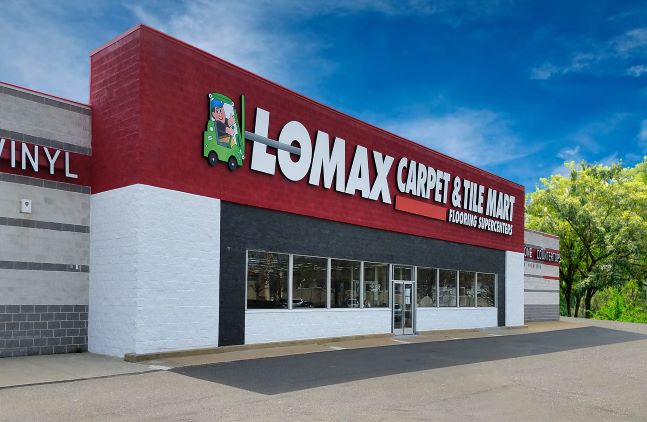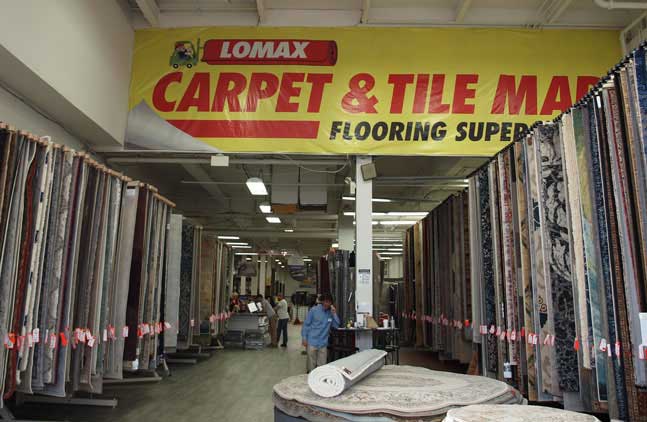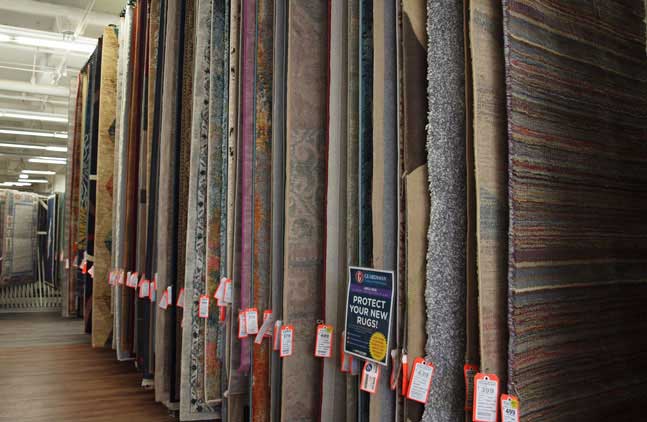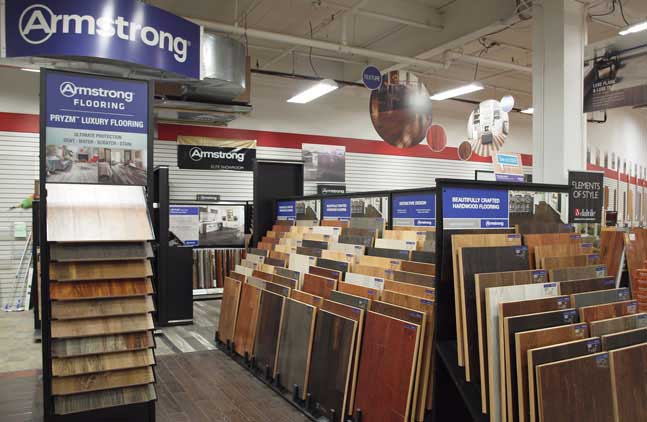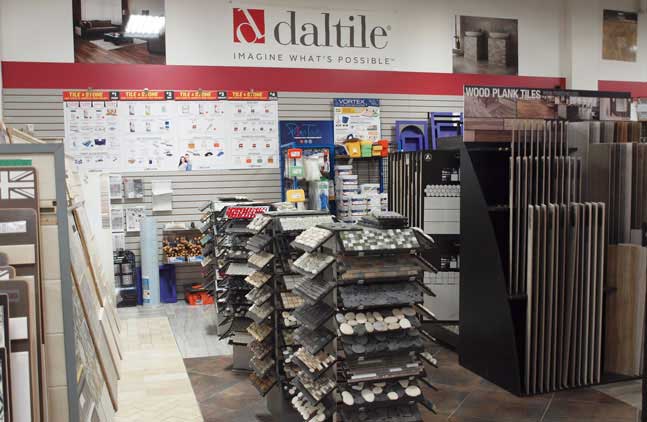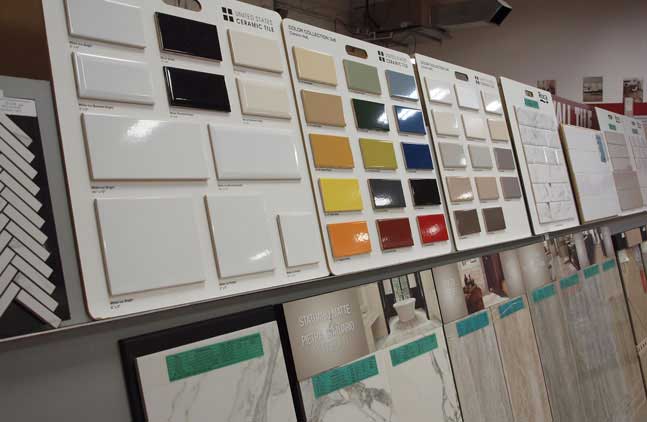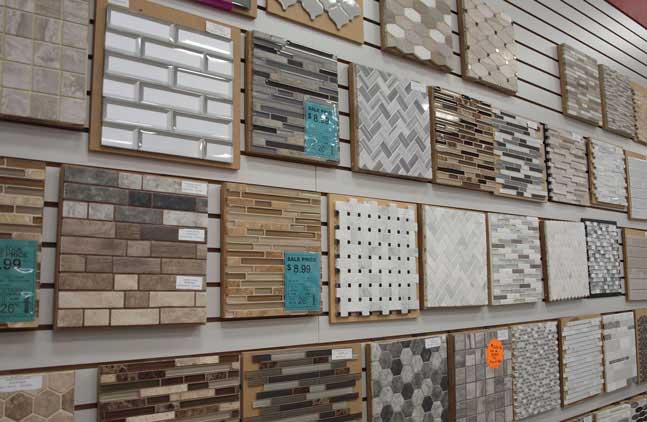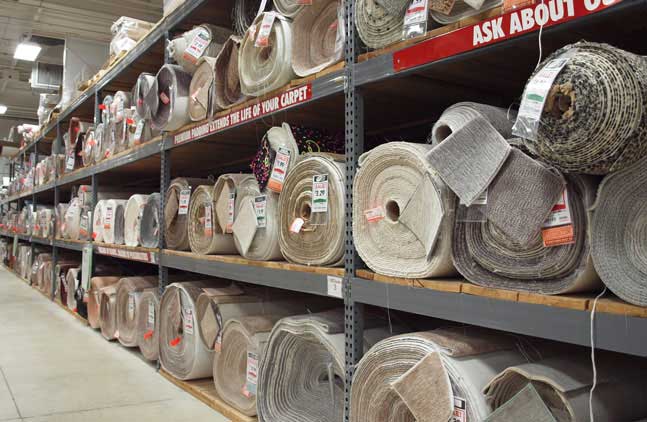As you prepare to replace the floors in your home, it is important to know the pros and cons of each type of flooring. For anyone making such a long-term decision, it's vital to get all the facts, and we’re here to help you do just that!
In this article, we’ll explore one type of flooring in particular – laminate flooring. Renowned by DIYers and those on a budget, laminate flooring has plenty of advantages compared to carpet and hardwood floors, but is it the right choice for you?
Continue reading to find out!
What Materials Does Laminate Flooring Use?
Laminate flooring is an inexpensive and highly practical option for many homes. Laminate floors can create realistic floors that look like real wood or engineered hardwood flooring, an effect achieved by laminating different low-cost composite materials that have been layered together (hence the name "laminate").
But what exactly are these multi-layer planks made up of? Laminate flooring typically consists of three layers: a core layer (plywood or fiberboard), an image layer, and a transparent wear layer. In addition, some laminate flooring comes with an additional underlayment layer that helps to protect from excess moisture and can also provide soundproofing qualities.
In high-end homes, laminate flooring has become a popular choice because of its functionality, durability, and attractive appearance. It does this through the stability and strength provided by the core (or base) layer. Further, the image layer creates the aesthetics of solid hardwood flooring, while the wear layer ensures durability.
What Are the Differences Between Laminate Flooring and Vinyl Flooring?
Due to their similar appearances and similar installation processes, laminate flooring and vinyl flooring are often confused. So what is the difference between laminate and vinyl flooring?
The most significant distinction between these two flooring options is in their materials. Vinyl flooring is almost entirely made of synthetic materials, whereas laminate's core materials are made of wood chip composite.
This difference in materials is noticeable both in the products' flexibility and in their resistance to water. For example, vinyl flooring is more flexible than laminate and is also fully waterproof. On the other hand, laminate does have water-resistant qualities, but it isn't fully waterproof.
Aside from those differences though, laminate and vinyl do share a lot of benefits. So which one is better, and how do you choose between the two options?
If you're trying to decide between the two options, it boils down to this: consider your needs. For example, do you have pets in the house? Thanks to its waterproof qualities, vinyl flooring is a great choice for households with pets.
However, if you're after aesthetic qualities, laminate flooring often mimics real hardwood better thanks to its detailed décor layer (i.e. the image layer previously mentioned).
What Styles of Laminate Flooring Are Available?
Interested in a particular wood, tile, or stone floor look? Laminate can mimic it. As mentioned previously, the amazing thing about laminate flooring is that it can mimic a wide variety of natural flooring options.
Whether you're going for a neutral look with light hardwood floors or you prefer the elegance of dark hardwood to match your home's interior design, there is a laminate flooring option out there that suits your styling preferences.
Where Can You Install Laminate Flooring?
Laminate flooring is a great option for areas with high traffic, such as hallways, entryways, living rooms, and kitchens. Its durability means that it can withstand wear and tear from shoes as well as scratches from pets and furniture. Aside from being durable, it is also stylish and comfortable enough to be used in bedrooms.
Moreover, laminate flooring is moisture-resistant, so if you clean it up properly, it will remain in great condition. This is particularly useful in rooms such as the kitchen or dining room, where spills often occur.
How Is Laminate Flooring Installed?
We have good news for DIY enthusiasts: laminate flooring can be installed without professional help. Depending on the type of laminate, it can be installed in a few different ways, including nailing down, gluing, or stapling.
If you're ready to take on the project, you can choose to install laminate planks yourself. However, like most DIY projects, you'll have to allot the necessary time out of your schedule to complete the installation.
In some cases, using a professional installer can reduce costs and save you a lot of time. This is especially true if you feel like you may end up making a costly mistake while installing the laminate yourself.
Contact us today to get started on your laminate flooring installation!
How Long Will Laminate Flooring Last?
It's important to plan for the future when you pick out new flooring. Although laminate floor planks are cheaper, it has a significantly shorter lifespan than real wood. Either engineered wood flooring or solid wood would be the superior choice if you want a floor that will last you a lifetime.
With that being said, if you plan to stay in your home decades into the future, then you may want to consider the costs associated with replacing laminate floors. Though laminate is more affordable at the outset, it ultimately may be cheaper to buy hardwood floors in the long run, as you won't need to replace them if well maintained.
Depending on how well laminate flooring is cared for and maintained, it can last anywhere from a decade to thirty years. Hardwood flooring, on the other hand, can potentially last from 70 to 100 years with proper maintenance.
What Are the Benefits of Laminate Flooring?
Flooring needs vary from room to room. For example, a laundry room floor might have different needs than a living room. The great news is that laminate is highly versatile, meaning it does well in a lot of different areas of the home.
As an all-around solution, it offers the following advantages:
Durability
One of the biggest advantages of laminate flooring is its hardiness. Laminate holds up well under foot traffic and spills. Plus, laminate is scratch-resistant, so you won't have to worry about your furniture damaging your new flooring as much as you would with a real wood floor.
If you're looking for the same flooring to install throughout your entire home, or if you just want to replace the flooring in a single high-traffic room, laminate flooring is a good choice.
Maintenance
For busy people and families, having flooring that is easy to clean and requires little to no maintenance can be a big selling point. With carpet flooring, professional cleanings are recommended once a quarter.
As a result of the cost and time required for these cleanings, carpeting can be a much higher maintenance option. Since maintaining laminate flooring is much easier than carpet, you can also expect a longer life from laminate as well.
Easy Installation
Those looking to save money on their home improvement projects can benefit from laminate because it makes for an easy DIY project. In particular, click-together laminate flooring is super-easy to install.
Of course, if you don't want to install it yourself, a professional will have no trouble tackling the job. Since it's relatively simple for someone who knows what they are doing, the professional installation process should be a smooth, quick process.
Pet and Kid-Friendly
It can be challenging for families to find flooring that can handle accidents and spills caused by pets and kids. Thanks to its durable wear layer, laminate flooring can resist stains, scratches, scrapes, and footprints, making it a great choice for families.
While some types and styles of carpet can show footprints and regular wear, and hardwood can be easily scratched, laminate flooring can handle high-traffic areas for long periods with grace.
Comfortable
The foam underlayment attached to laminate flooring makes it comfortable to walk on. Without this layer, your laminate flooring would sit directly on concrete or plywood - hence the need for an underlayer.
Underlayments are either made from plastic or foam (depending on the product), but regardless of what material they are made of, they serve to provide cushioning, soundproofing, and stability.
Is Laminate Environmentally Friendly?
For a lot of people, understanding the impact of the materials they use is important when deciding on which product to use in their home. If you are eco-conscious, you'll be happy to know that laminate flooring is one of the best options on the market.
Thanks to its core layer, which uses mostly organic materials, there aren't a lot of synthetic materials in its makeup, except in the top layer. In contrast, vinyl flooring is made almost entirely out of synthetic materials.
Is Laminate Appropriate Flooring in all Climates?
Picking out the best flooring can be tricky if you live in a humid climate. Laminate flooring generally doesn't do well in humid climates (as most solids tend to expand).
Due to the natural wood materials in its core, laminate in particular tends to absorb moisture and expand, which can cause significant damage to your flooring. For best results, it's best to let your laminate floor sit out for a while to acclimate to the humidity.
You may also want to consider high-pressure laminate flooring if you live in an especially humid area with high heat. This type of waterproof laminate uses glue that reduces its moisture-absorbing properties, so your floor won't expand.
What Are the Costs of Laminate Flooring?
Laminate flooring is generally affordable, especially when compared to hardwood. Usually, quality laminate flooring is around four or five dollars per square foot but can go up to ten dollars per square foot for some types. If you choose to install the flooring yourself, you'll be able to save a bit of money on professional installation fees.
Is Laminate Flooring Right For You?
If you want durable, scratch-resistant flooring that's easy to install yourself, then laminate flooring is your best while. Moreover, laminate costs roughly the same as vinyl flooring while also enjoying a lot of the same benefits.
Laminate also has advantages over hardwood, including price and durability. Nonetheless, the right flooring for your home depends on your personal preferences and budget.
Why not explore some laminate flooring products and options? At Carpet and Tile Mart, we have hundreds of high-quality laminate options available for you to explore from the comfort of your home.






